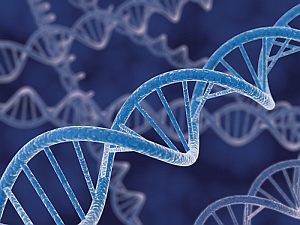1 April 2015. The managed-care provider Kaiser Permanente in Oakland, California is collecting genetic and environmental data from 5,000 of its members to better pinpoint causes of autism spectrum disorder. The 3 year project, which includes establishing a databank for further research into autism, is funded by a $4.6 million grant from the Simons Foundation in New York.
Autism spectrum disorder is a collection of neurodevelopmental conditions, marked by communication difficulties and impaired social interaction, as well as repetitive and stereotyped patterns of behavior. Some 1 in 68 children have autism spectrum disorder, according to Centers for Disease Control and Prevention, with males 5 times more likely to have the disorder than females. Classic autism is considered the most severe form of the syndrome.
Both genetics and environmental factors are believed play a role in causing autism. National Institute of Neurological Disorders and Stroke cites research of identical twins showing if 1 twin has autism, the other twin has a 90 percent chance of being affected with the disorder. Yet a good deal of evidence also points to environmental factors affecting a child’s development of autism, both pre- and post-natal.
The Kaiser Permanente project aims to collect detailed genetic, medical, and environmental data from its member families, mainly in northern California, having a child with autism under the age of 26. The data, with identifying details removed, will focus on both biological parents as well as the child. Because of the complexity of the disease, a large sample is needed to adequately account for all potential variables, both genetic and environmental.
The data will also be made available to qualified researchers from outside Kaiser Permanente in a resource called the ASD Family Biorepository. “Our goal for this new research bank is to create a resource that helps guide the development of effective autism treatments,” says Lisa Croen, director of the group’s autism research program, in a Kaiser Permanente statement.
The autism study is part of Kaiser Permanente’s larger genetics and environment project to better understand the relationship between genetics and health. As reported in Science & Enterprise in July 2011, Kaiser Permanente is collecting genetic data for a biobank with blood and saliva samples from volunteer members, and correlating those results with details from the members’ electronic health records, as well as behavioral and environmental variables.
The plan’s health records database, known as HealthConnect, covers all 9.3 million plan members nationwide and offers patients a personal health record, including versions for mobile devices.
Read more:
- Robot for Reaching Children With Autism Demonstrated
- Trial to Test Video Game Therapy for Autism
- Stem Cells Shown Effective with Autism in Lab
- Genomic Data Analysis Service Launches, Hosts Autism Data
- Humanoid Robots Help Children with Autism Learn Interaction
* * *


 RSS - Posts
RSS - Posts
You must be logged in to post a comment.